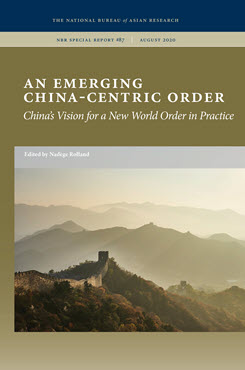NBR Special Report no. 87
Harmonic Convergence
China and the Right to Development
This essay examines how China uses the right to development as a normative instrument and strategic tool to advance China’s interests and position in relation to human rights, security, and development at the United Nations.
Executive Summary
MAIN ARGUMENT
The right to development has been a centerpiece of official Chinese human rights policy ever since China issued its first white paper on human rights in 1991. China has consistently invoked this right to support its position that sovereignty and national conditions trump universal human rights standards and that economic development must come before human rights. In the last decade, China has furthermore made active efforts not only to defend its human rights record against international scrutiny and criticism, but also to shape international human rights norms to better accommodate its position and interests. Beijing aims to break the “Western human rights hegemony” and increasingly dismisses as Western the universal principles and norms that underpin the established international human rights framework. In contrast to China’s human rights discourse in the 1990s and early 2000s, China’s authoritarian governance model is presented no longer merely as different from but as superior to the Western liberal democratic model. Likewise, Chinese party-state policy is presented not only as encapsulating Chinese values with domestic relevance but as international norms with universal applicability. The right to development discourse lends legitimacy to Beijing’s political interests and agenda and provides a convenient vehicle through which China can advance its vision for a “shared future” with “mutually beneficial cooperation” at the United Nations. This is problematic because Beijing’s concept of human rights challenges established international standards and the principles of universality, indivisibility, and rule of law.
POLICY IMPLICATIONS
- Democratic backsliding in Europe and the withdrawal of the U.S. from multilateral cooperation and international human rights mechanisms accelerate authoritarian erosion of the international human rights system and undermine efforts by the international community to put pressure on all states to respect and fulfill their obligations.
- Unless governments around the world step up to defend internationally agreed-on human rights norms and protection mechanisms, the current system risks being replaced by an authoritarian paradigm modeled by China.
Malin Oud is Director of the Raoul Wallenberg Institute’s Stockholm office, Director of the China Programme, and Team Leader, Economic Globalisation and Human Rights.



